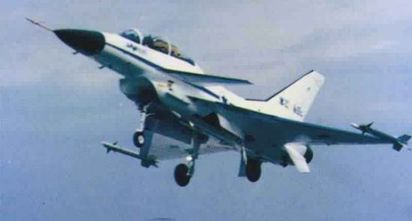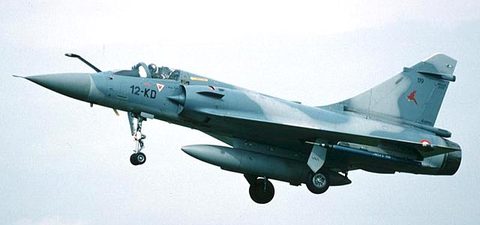Friday’s Taipei Times featured a scathing editorial about President Chen Shui-bian’s recent gaffes, most of which is hard to argue with:
A few weeks ago he crossed the line when in an attempt to highlight Chinese Nationalist Party (KMT) presidential candidate Ma Ying-jeou’s (馬英九) faux localization effort, he attacked Ma over the inscription on his father’s urn.
I didn’t blog about that, but really, what could I say? Speak no ill of the dead, I guess. Sometimes it’s OK to violate that general rule, but in this case, he could easily have made his point without doing so.
The Times also indicted him for mentioning that declaring martial law was one option for resolving a procedural dispute for the coming referendums:
And just the other day, while at a campaign rally in Shulin (樹林), Taipei County, Chen raised a few eyebrows when he told the crowd that he was considering imposing martial law if the KMT did not back down on its threat to implement two-step voting in areas under its control during legislative elections.
Again, I didn’t blog about that because the threat seemed like nothing more than ill-advised machismo.
Did I say ill-advised? Stupid’s more like it. Still, Chen didn’t declare a state of emergency back when he was shot in 2004, so I didn’t seriously believe he’d do so over an argument about this. KMT presidential candidate Ma Ying-jeou said as much himself.
The Times mentions one gaffe however – one that I had a hard time figuring out what all the fuss was about:
[President Chen] thought it clever to hit back at a heckler with some snide remarks, only serving to spark a wave of copycat attacks and further damage his image and that of his administration.
Taiwan’s China Post sure made a big issue about that a few weeks ago:
…DPP leaders who once prided themselves on their folksiness and humble backgrounds now appear all but sick and tired of hearing complaints from the people. President Chen Shui-bian, the self-declared "Son of Taiwan" who rose from a poor farming family to become a famous lawyer and national leader, has now abandoned any pretense of being close to the ordinary man.
Last week when President Chen attended an exhibition of domestically produced high-fidelity audio equipment, a man approached him and loudly declared, "the people will soon be unable to live!" The president didn’t offer much of a reaction to the emotional heckler, saying only that he respected differing opinions that commonly occur in a democratic society.
But soon afterward, President Chen angrily announced that unlike his KMT predecessors, he would not train gangsters…and dispatch them to "whack" people like the protester…
After President Chen returned to his office, he told a group of visitors that Taiwan’s economy was clearly doing quite well, since the man who claimed the people could hardly live still had the spare time and money to buy a ticket to a hi-fi stereo exhibition.
I kinda thought Chen had a point. Be that as it may, the Post went on to imply that this type of response was somehow less than democratic:
We do understand that leaders of all political stripes cannot abandon fundamental policies simply because they have been confronted by hecklers. However, we are quite surprised at the abrasive and harsh way that our leaders have dealt with these incidents. While heckling is rather common in other democratic countries, foreign leaders are almost always gracious enough to quickly brush away their critics and continue their original itineraries.
U.S. President George W. Bush, who has frequently been heckled during public speeches and gatherings due to the controversial U.S.-led war in Iraq, has never publicly lashed out at his critics with such abrasive and angry words. Even when an anti-war student spit in the face of the former U.S. President Richard Nixon in the early 1970s, the controversial American leader merely wiped off his face with a handkerchief and continued making his way to where he was going.
I think the China Post confuses tactics with ethics here. It’s entirely ethical for a democratic politician to respond to hecklers if he so chooses. A bad argument is a bad argument, whether it’s made by a rival politician, a China-appeasing businessman, the Foreigner in Formosa, or a drunk in the back of the hall. If a bad policy proposal is being entertained by a sizable number of people then it’s worth being rebutted, no matter whether the one making the proposal is a member of the political class or not.
(What’s more, I’d argue that rebutting a heckler’s arguments is in fact a sign of respect. Not to respond to somebody is to snub them – it’s a way of showing that I hold you in such contempt that I don’t consider your statements to even be worthy of a reply.)
Sarcasm is of course, less justifiable, but if President Chen was rude to some of his hecklers, well, I fail to see why this should give anyone the vapors. Let’s not forget the fact that heckling is rude to begin with. Folks came to hear Chen speak, but his speech was interrupted. Now, I know that Miss Manners tells us it’s impolite to answer impoliteness with impoliteness. But in the real world, if you’re rude to somebody, you can’t really complain too much if they turn around and respond in kind.
After reading the China Post‘s litany of Western politicians who turned the other cheek when confronted by hecklers, I was tempted to find a few counter-examples:
Hillary Clinton heckles a heckler – 2007
Bill Clinton slams 9/11 conspiracy moonbat
Bill Clinton tears strip off a protester – 1992
Ronald Reagan’s less than gentle response to a heckler
(Sure wish I could find video of former Canadian Prime Minister Jean Chretien strangling a protester back in 1996. Richard Nixon and Jean Chretien – one of these is NOT a Quaker.)
Why Western politicians don’t confront citizens who interrupt their rallies more frequently is really just an issue of tactics. First, there’s often nothing to be gained by giving fringe ideas the dignity of a response. And secondly, a politician who engages hecklers is a politician who is allowing his opponents to set his agenda. Every minute of time that he spends answering hecklers is a minute not spent delivering his own message. Particularly on this latter point I can see why a person might say it was somewhat unwise for Taiwan’s president to respond to the critics in the crowd. But surely the brouhaha was entirely out of proportion to the "offense". It almost seems like we’re being issued a new set of rules: those who govern are henceforth forbidden from ever speaking back to those that they govern.
That the China Post damns President Chen for whatever he does I take as a given; that the Taipei Times objects as well to his confronting of hecklers suggests something more is at play here. My pet theory about this reverse Confucianism is that it may have something to do with holdover attitudes from the martial law era. Nobody in the world likes to be called out by authority, but in Taiwan there’s an additional dynamic. You see, for forty years, Taiwanese dictators could publicly denounce anyone they liked. And if you were one of the ones being denounced, you knew you were in pretty deep trouble indeed. No wonder people here have a stronger than usual aversion to being criticized by their leaders! The days of the political prisons and the knock on the door in the middle of the night may all be gone, but those memories still linger. Taiwanese may be free now, but deep down, they’re still a little afraid. And that, I think, creates a conundrum.
Taiwanese are free, and they want the freedom to criticize. But they’re still afraid, so they don’t want others to be free to criticize THEM. So it’s freedom for me, but not for thee.
Frankly, this foreigner just doesn’t see how that can really work.

